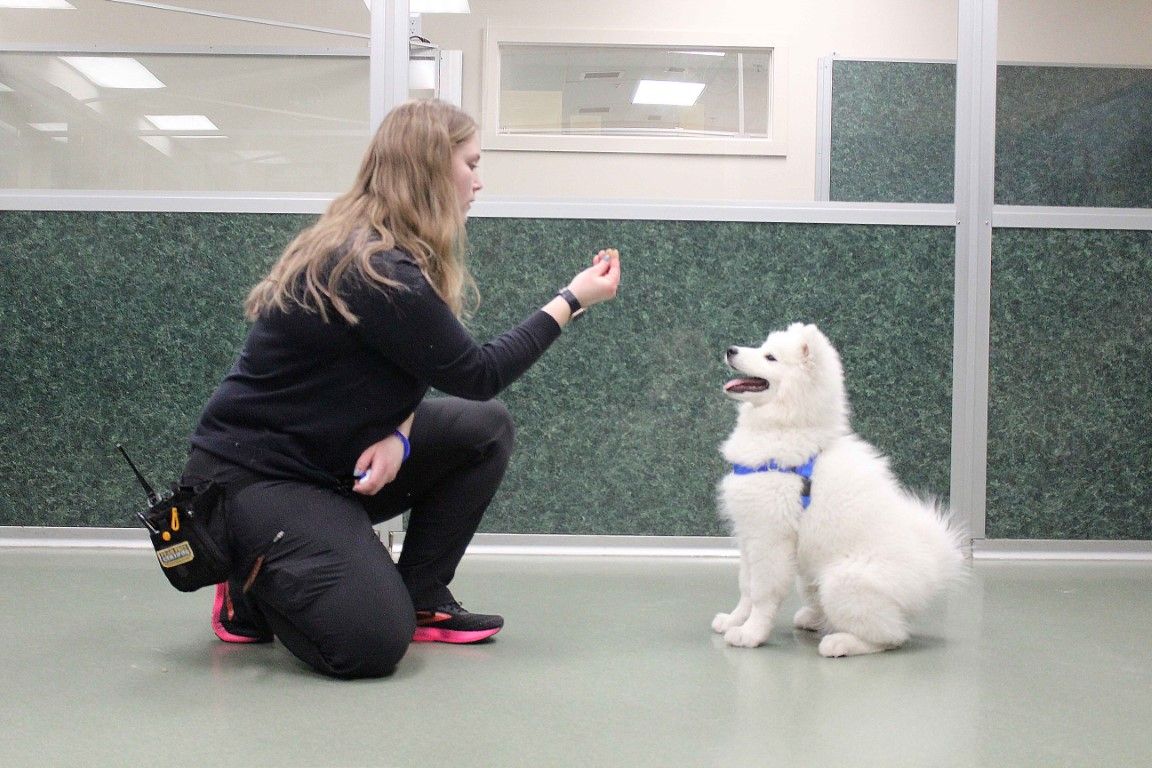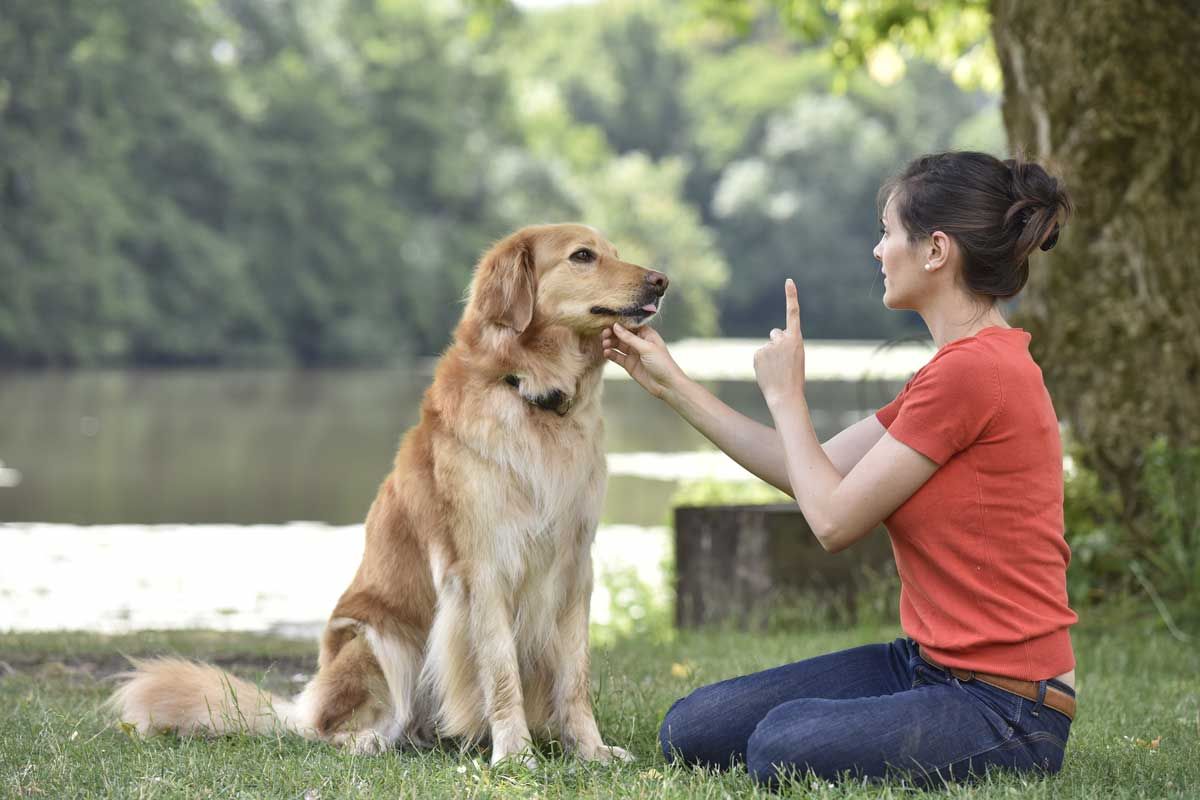Private Dog Obedience Training: 5 Reasons It May Be the Right Choice for Your Dog
The Benefits of Dog Training Within Your Own Home
As a dog owner, there are two options for professionally training your dog: group and private dog obedience training. While both styles have their benefits, private training is highly favored among many dog owners for these five reasons:
Learning in the comfort of your own home. Having a dog trainer come to your home will cultivate a stress-free atmosphere for your dog. Your dog will not only be familiar with their surroundings, but they will also be able to practice behavioral techniques within the daily boundaries that have already been set in place.
1:1 Attention from the trainer. Your dog will be the only client and will receive undivided attention from their trainer. This is a huge benefit because it enables you as the owner to ask questions and be more involved in your dog’s training minus distractions.
Personalized scope of training. Not only will your dog be the only client, but the training will be tailored to your dog’s specific needs and speed of learning. This is a huge bonus compared to group classes where your time may be wasted by interfering questions from other dog owners. The dog trainer will be able to focus only on your dog and assess their needs individually. This may also involve taking your dog to specific places to practice behavior techniques such as a park or coffee shop.
Practice makes perfect. Private dog obedience training gives the trainer the ability to thoroughly assess your dog’s strengths and weaknesses. This assessment will give the trainer the information they need to create a homework plan that will ensure you and your dog have a smooth transition from training to your daily routine.
Speak With A Dog
Training Expert
Speak With A Dog Training Expert
Thank you for contacting us!
We will contact you shortly!
Please try again later.

Dog Trainer Advice on the Right Food and Amount for Your Breed
As a responsible pet owner, one of the most crucial decisions you'll make for your furry friend is selecting the appropriate dog food. Each breed has its unique nutritional requirements, depending on factors like size, age, activity level, and health status. Understanding these needs and selecting the right food ensures your canine companion thrives with optimal health and vitality.
Different dog breeds have varying nutritional needs based on their size, metabolism, and predisposition to certain health conditions. For instance, large breeds like Great Danes or Mastiffs require diets rich in quality proteins to support their muscle mass and joint health. Conversely, smaller breeds like Chihuahuas or Yorkshire Terriers may benefit from smaller kibble sizes and formulations designed to support their fast metabolism and dental health. Puppies, adults, seniors, and pregnant or nursing dogs all have distinct nutritional requirements.
Speak With A Dog
Training Expert
Speak With A Dog Training Expert
Thank you for contacting us!
We will contact you shortly!
Please try again later.
Puppies need higher levels of protein, fat, vitamins, and minerals to support their rapid growth and development. Adult dogs require a balanced diet to maintain their overall health and energy levels. Senior dogs may benefit from diets with reduced calories and specific supplements to support aging joints and cognitive function. Pregnant or nursing dogs need diets with increased calories, protein, and essential nutrients to support both the mother and her growing pups.


Proper Foods: Dog Training Corpus Christi
The activity level of your dog plays a significant role in determining its caloric needs and nutrient requirements. Working breeds or highly active dogs such as Border Collies or German Shepherds need diets rich in high-quality proteins and fats to sustain their energy levels and support muscle recovery. Conversely, sedentary breeds or dogs with lower activity levels may require fewer calories and a balanced diet to prevent weight gain and maintain optimal health. Certain breeds are predisposed to specific health conditions, such as hip dysplasia in large breeds or dental issues in brachycephalic breeds. Tailoring your dog's diet to address these concerns can help mitigate risks and promote overall well-being. Additionally, some breeds may have food sensitivities or allergies, necessitating a diet free from common allergens such as grains or certain proteins. Consulting with your veterinarian can help identify any dietary restrictions or special considerations for your breed.
When selecting a dog food for your breed, consider factors such as ingredient quality, nutrient content, and
Distraction free. Having your dog learn at home vs enrolling them in a group class will cultivate a distraction free environment. Your dog will not be overwhelmed with new smells, sounds, dogs, or people and will in turn be able to focus on their trainer. There is plenty of time as well as space for your dog to concentrate on its new skills when it is not surrounded by multiple dogs who are learning at different paces in a limited space.
Things To Consider Before Choosing Private Obedience Training For Your Dog
Private lessons are incredibly effective at helping your dog overcome bad habits and develop new skills. Private lessons are a common approach for many dog owners especially if their dog exhibits traits that would hinder learning in a group setting. These include shyness or anxious behavior, aggression, and even separation anxiety. Another note to consider is the type of advanced training your dog is in need of. Perhaps they have already mastered basic skills and are in need of something more specific.
A potential drawback to private training is cost. Private dog training is tailored to your dog’s specific needs, unlike group training which follows a generalized lesson plan. The trainer is able to perform a more in depth evaluation and create a plan in an environment that is most familiar to you and your dog. You may find that these benefits outweigh the cost of private lessons and are worth the investment for your long term needs. The best way to make an informed decision for you and your dog is to schedule an evaluation so that your training goals and needs can be thoroughly assessed and understood before enrolling your dog in private dog obedience training.
feeding guidelines. Look for products that list a high-quality protein source as the first ingredient and avoid fillers or artificial additives. Opt for complete and balanced diets formulated to meet the specific nutritional needs of your breed and life stage. Additionally, consider factors such as taste preferences, texture, and feeding habits to ensure your dog enjoys and thrives on its chosen diet.
Choosing the right dog food for your breed is a vital aspect of responsible pet ownership. By understanding your dog's unique nutritional needs based on its breed, age, activity level, and health status, you can provide a diet that supports optimal health and vitality. Consulting with your veterinarian and carefully selecting high-quality, balanced diets ensures your canine companion receives the nourishment it needs to live a happy, healthy life.
